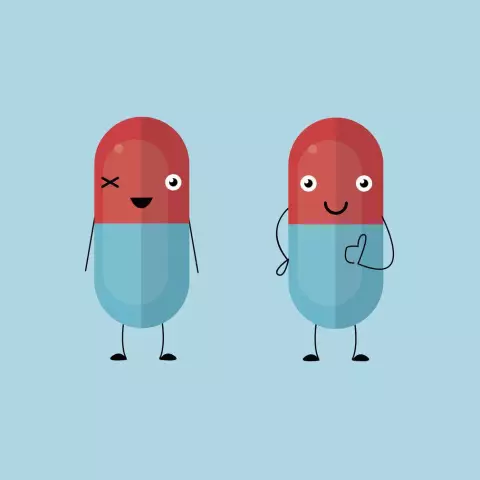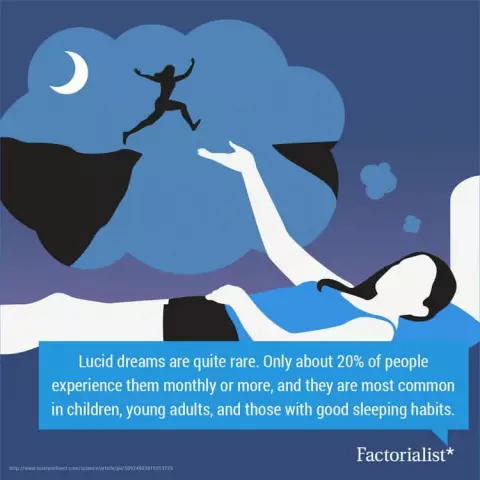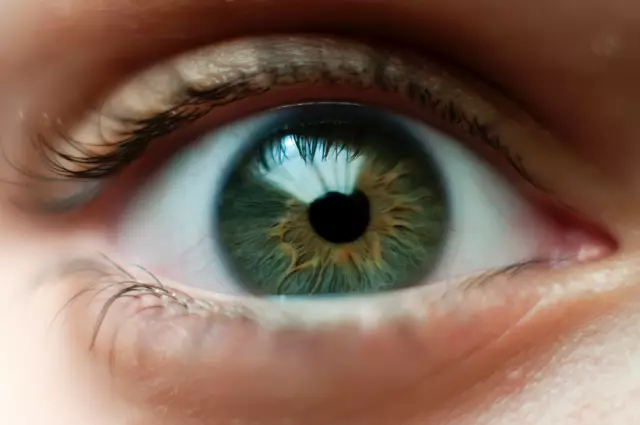- Author Rachel Wainwright [email protected].
- Public 2023-12-15 07:39.
- Last modified 2025-11-02 20:14.
The placebo effect: 6 interesting facts
The phenomenon of improving the condition of patients when taking drugs that do not contain active substances, the so-called placebo effect, has been known for a very long time. At the end of the 18th century, American physician Perkins began to treat people with "miraculous" chopsticks made of an alloy of steel and brass. It was enough to press such an object to the sore spot for a few minutes to make the patient much easier. Suspecting Perkins of quackery, his colleagues tried to repeat the "miracle" with sticks made of wood, bone and other materials. To their surprise, the effect was similar: the general condition of the patients improved, the pain syndrome disappeared. The doctors concluded that the reason for the therapeutic effect was not in the sticks themselves, but in the psychology of patients who expected relief from their suffering and trusted doctors. Since then, the placebo effect has been investigated repeatedly. The mechanism of its work is not fully understood today, but scientists have accumulated a lot of interesting information about this phenomenon.

Source: depositphotos.com
Physical action
Initially, it was believed that the placebo effect is purely psychological: hoping for an improvement in his condition, the patient simply begins to tolerate the unpleasant symptoms of the disease more easily. Research conducted on volunteers has shown that this is not the case. Of course, it is impossible to stop the inflammatory process or heal a fracture by taking only "dummies", but the placebo drug is quite capable of relieving pain caused by objective reasons (for example, the introduction of special drugs). It turned out that taking such a "medicine" by a person who believes that it is a real pain reliever causes an increased production of endorphins in the brain, which reduce pain.
Placebo injections and similar tablets
Many people are convinced that treatment with injections is much more effective than taking pills of a similar composition (by the way, this is not always true). This opinion also applies to the use of placebo. It has been proven that people who receive an "empty" drug in the form of injections feel relief much faster than patients who take placebo pills or capsules.
Reverse effect
Investigating the placebo phenomenon, scientists suggested that the opposite effect is possible: patients taking real drugs, but convinced that they are being given a "dummy", should not ease symptoms of the disease. This was fully confirmed. This means that the patient's psychological attitude and the degree of patient confidence in the doctor play a major role in the placebo effect.
Placebo effect and brand drugs
It is known that the majority of people trust widely advertised drugs from well-known manufacturers more than analogs made by less well-known companies. The same is true for placebos: Patients experience symptom relief more quickly when given “empty” pills, packaged in famous brand labels.
Similarly, the placebo phenomenon occurs when a patient is convinced that he is taking a very expensive drug, as opposed to a neighbor who is "treated" with a cheap drug of the same composition.
Placebo success
Surprisingly, not only placebo drugs have a healing effect, but also surgical operations that mimic real intervention. Finnish doctors conducted such studies on patients who needed help in repairing injured cartilaginous tissues. Half of the patients made only incisions in the surface layers of the skin under local anesthesia, and did not even touch the torn cartilage. Nevertheless, the healing of injuries occurred with almost the same intensity as in the patients actually operated on. A similar experiment was conducted in people who needed surgery to reconstruct parts of the spine, and the phenomenon manifested itself to the same degree.

Source: depositphotos.com
Placebo effect subject to patient awareness
Oddly enough, it turned out that the placebo effect works even when the patient knows that he is not actually being treated. This was revealed in the following experiment: two groups of patients suffering from irritable bowel syndrome were selected. One of them did not prescribe any medications, while participants in the other were given “blank” pills with the word “placebo” written on the packages. They explained to the people that they were simply being tested for the psychological effects of a harmless substance that had no medicinal properties. Despite this, the unpleasant symptoms in the patients from the second group decreased and they really felt better.
The study of the placebo effect is ongoing. You might think that scientists are driven by sheer curiosity, but they are not. If the mystery of the phenomenon is unraveled, doctors will have powerful means of influencing the body's self-healing potential, which will allow replacing many existing methods of treatment with more effective and safe ones.
YouTube video related to the article:

Maria Kulkes Medical journalist About the author
Education: First Moscow State Medical University named after I. M. Sechenov, specialty "General Medicine".
Found a mistake in the text? Select it and press Ctrl + Enter.






